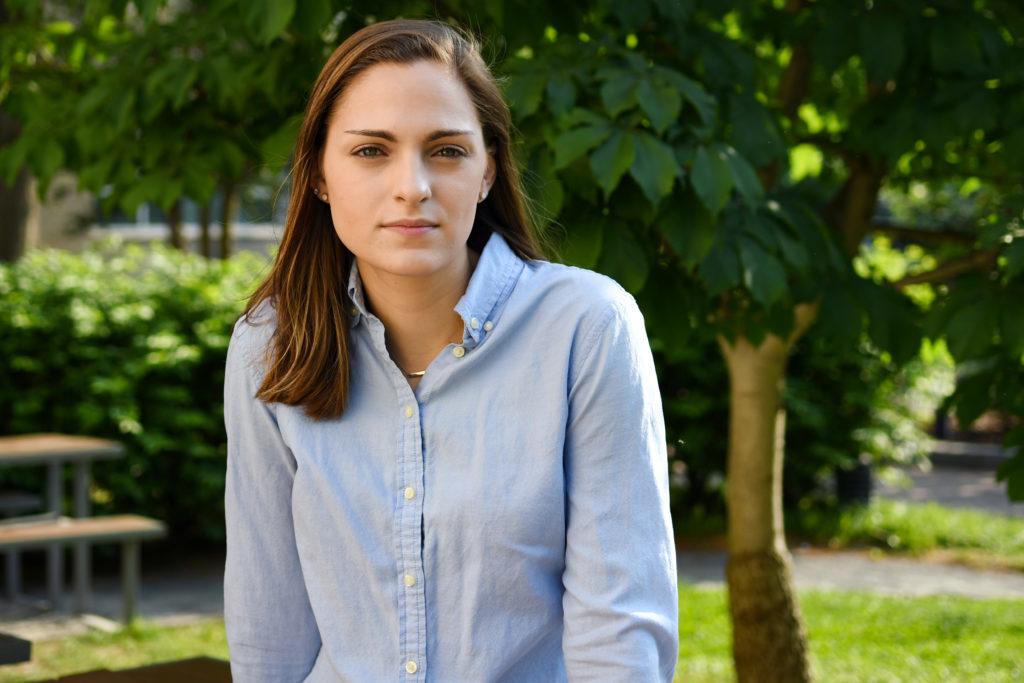After at least one year heading student organizations, graduating student leaders say they value their graduation cords over their diploma.
Leading a student organization can be a full-time job and student leaders said it was difficult to balance their jobs with school and other commitments. But the students all said holding the positions was worth it because the jobs allowed them to gain skills, apply classroom concepts and find friends on campus.
Applying skills from class
For Tomi Simisola Sodimu, the outgoing president of the African Students Association, the late-night meetings on the Foggy Bottom campus initially deterred her from being active in her student organization. After friends raved about the organization, she first attended a general body meeting during the second semester of her freshman year.
She said she became hooked and ended up finding a vital support system in the organization. Sodimu began to climb the ranks, serving as event coordinator her sophomore year and holding the position of president during her junior and senior years.
During her time as president, Sodimu said she worked to add more educational and volunteer opportunities for more than 125 members. While adding resume-building workshops, test banks, scholarship resources, mentorship programs and about three service projects per year, she said she had to make sacrifices and lay out her priorities to balance the job with other commitments.
“College is not simply about the classes you take,” Sodimu said. “It’s also about the hands that you shake, the people you’re meeting and how influential and important your network can turn out to be.”
As a double major in psychology and philosophy, Sodimu said running her student organization forced her to apply concepts from class when working with members and helping them sort through problems that came up on the job.
“It gives you a way to apply those skills in an active way,” she said.
Through her position, she also said she was exposed to more “development work,” which solidified her post-graduation plans.
After she collects her diploma, Sodimu will continue running a nongovernmental organization that provides formal education opportunities to women in Nigeria that she started in 2009. She will also continue growing a skincare company she launched last year called Simisola Naturals that sells body butter and other beauty products online and sources ingredients from women’s co-ops in Nigeria and Ghana.
Experience to use during interviews
Mikey Re, the outgoing president of Theta Tau, said he joined the engineering fraternity as soon as he could freshman year. He said the student organization was a foot in the door to the School of Engineering and Applied Science community where he could socialize with current students and a network of graduates active in their field.
Re wanted to improve retention in the student organization but said he quickly learned that making changes as a leader is difficult and working with others is something that takes practice.
“One of the big challenges is trying to get people to also see the vision that you have,” he said.
To find success as a leader and complete the projects he wanted to as president, Re said managing time was important – especially when taking 19 credits some semesters and balancing school, the student organization and internships during others.
Re has an engineering job lined up at the U.S. Naval Research Laboratory after graduation.
Skills like delegating tasks and managing your time while president translates well to the real world and being able to draw on specific points of success makes a big difference during interviews, he said.
“They don’t care as much about your actual work experience, but if you have something to talk about in terms of what you’ve done for the organization, they love to hear what you have to say and the initiative you’ve taken,” he said.
Finding a home on campus
Allie Coukos, the graduating former chairwoman of College Republicans, said that she attempted to transfer not once, but twice, during her undergraduate career before finding her home in College Republicans.
Coukos first joined the student organization her freshman year but only got involved the second semester when she was encouraged to run for executive board. Even though Coukos was not initially the most involved member, she said she was able to find her place in the student organization.
“When someone saw potential in me to do a lot good for the org, that was kind of that a-ha moment for me,” Coukos said.
Coukos ran for a leadership position twice – once during freshman year and again in a special election sophomore year – before being elected to director of public relations in the spring semester of her sophomore year.
She said the position helped her find a group of like-minded people and that other students should seek that through student organizations as well.
“Find what you’re passionate about and run with it,” she said.
Coukos, who will be working at Deloitte after graduation, said she met some of her closest friends through the organization and has benefited from the community she gained, even though she isn’t opting for a career in politics.
Where she initially struggled to find her place on campus, she said joining a community through College Republicans helped her enjoy the rest of her time at GW.
“It creates a sense of community on a campus that sometimes lacks it,” she said.





